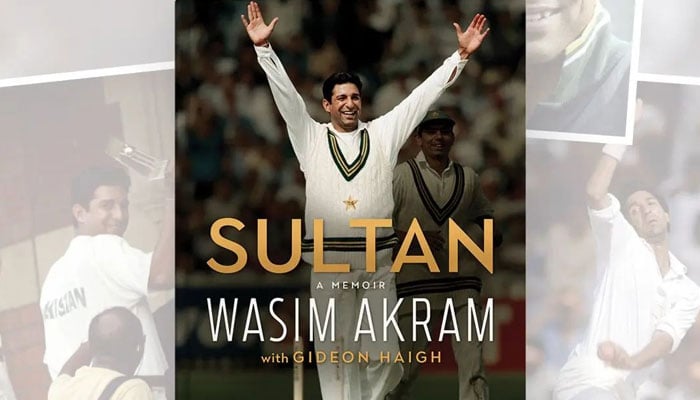Wasim Akram uncovers dark secrets in his upcoming autobiography
"Worst of all, I developed a dependence on cocaine," Akram admits in his upcoming autobiography 'Sultan: A Memoir'
Pakistan's former Test captain Wasim Akram uncovers dark secrets in his upcoming autobiography titled, 'Sultan: A Memoir', sharing details of his post-retirement cocaine addiction.
"I liked to indulge myself; I liked to party. The culture of fame in south Asia is all-consuming, seductive and corrupting. You can go to ten parties a night, and some do. And it took its toll on me. My devices turned into vices," he wrote in his book as quoted by the ESPNcricinfo.
"Worst of all, I developed a dependence on cocaine. It started innocuously enough when I was offered a line at a party in England; my use grew steadily more serious, to the point that I felt I needed it to function.
"It was getting out of hand. I couldn't control it. One line would become two, two would become four; four would become a gram, and a gram would become two. I could not sleep. I could not eat. I grew inattentive to my diabetes, which caused me headaches and mood swings. Like a lot of addicts, part of me welcomed discovery: the secrecy had been exhausting," the former captain revealed.
Akram's 18-year-long career ended in 2003. He is still considered one of the greatest fast bowlers Pakistan has ever produced. The left-arm pacer took 414 Test wickets and 502 ODI wickets.
The cricketer-turned-commentator had to struggle for a long with drug addiction which finally ended after his first wife's demise.
"Huma's last selfless, unconscious act was curing me of my drug problem. That way of life was over, and I have never looked back," he wrote.
Written by Patrick Murphy with the contribution of the cricketer himself, 'Sultan: A Memoir' will be out soon.
-
Meet Arvid Lindblad: Here’s everything to know about youngest F1 driver and new face of British racing
-
Kyle Connor focuses on Jets' NHL season after skipping Trump's White House invite
-
Trent Williams future with San Francisco 49ers uncertain ahead of NFL season
-
Jack Hughes speaks out as Jake Guentzel, and Team USA push back on State of the Union backlash
-
Alex de Minaur faces surprise elimination in Acapulco thriller by Patrick Kypson
-
Devin Vassell, Wembanyama shine in Spurs victory over Detroit
-
USA beats Canada for first Olympic hockey gold in 46 years; Donald Trump, Barack Obama & others hail historic victory
-
Claressa Shields defeats Franchon Crews-Dezurn in heavyweight title rematch












